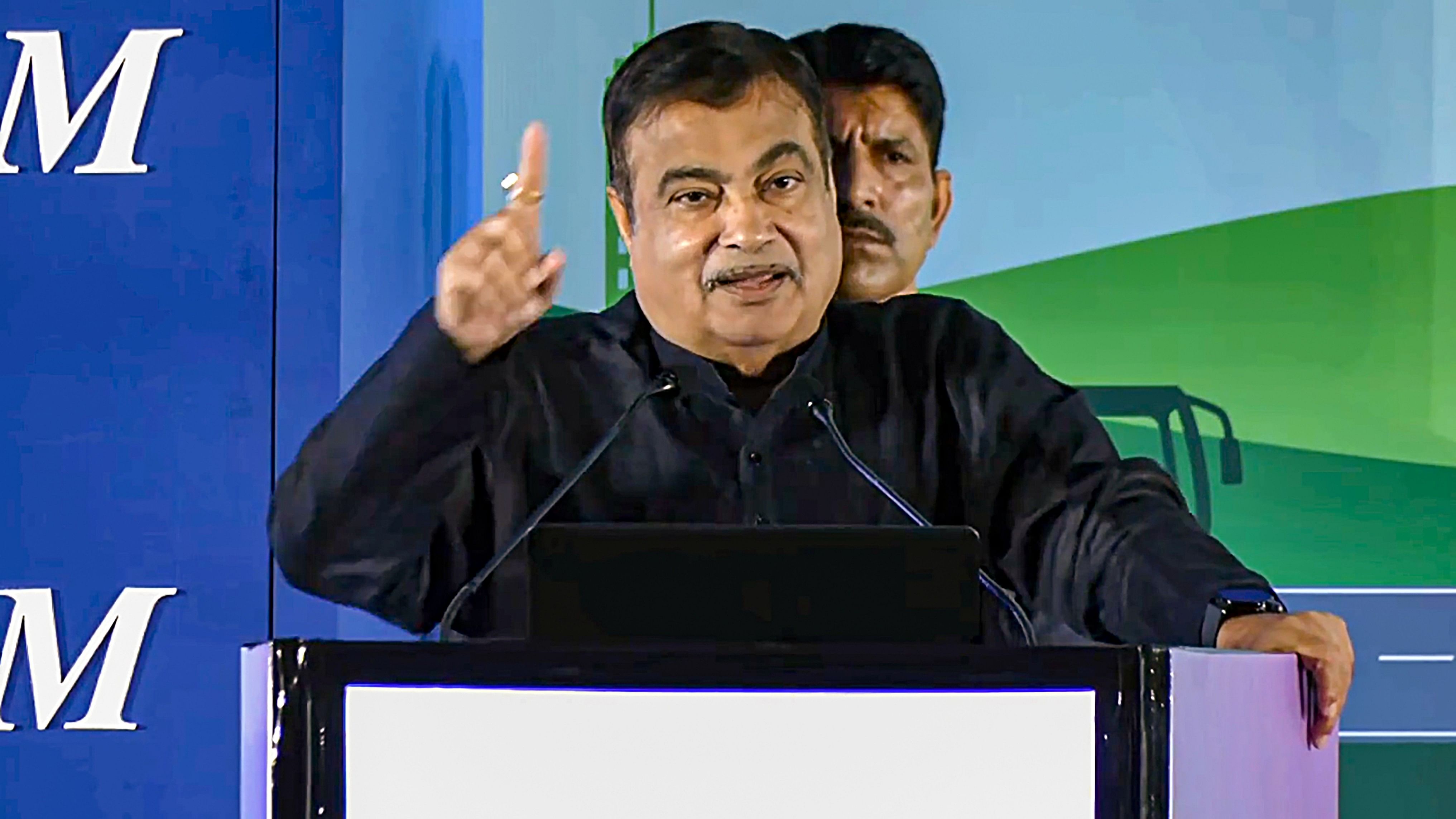
Union Minister for Road Transport and Highways Nitin Gadkari.
Credit: PTI Photo
Shares of oil marketing and automobile companies dropped on Tuesday as union Road Transport and Highways Minister Nitin Gadkari spoke on the need to levy an additional 10 per cent goods and service tax on diesel-run vehicles to cut emissions.
As the markets immediately reacted to Gadkari’s remarks, he posted a clarification that there was no proposal under government consideration to impose such a tax.
Speaking at the annual convention of automobile manufacturers body Society of Indian Automobile Manufacturers (SIAM), the Minister said "I am requesting the Finance Minister to impose an additional 10 per cent GST on diesel engines/vehicles. This is the only way to phase out diesel vehicles," he said.
Indicating that a meeting was scheduled with the Finance Minister to hand over a letter he had drafted on the issue, Gadkari said that rising pollution level is a serious health concern and there is a case for increasing taxes to dissuade the sale of diesel vehicles.
The reaction was swift. Shares of Hindustan Petroleum fell 5.3 per cent, Bharat Petroleum declined 4.11 per cent and Indian Oil dipped by 3.78 per cent on the Bombay Stock Exchange.
Among the auto shares, Ashok Leyland ended the day 2.68 per cent down, Tata Motors slipped by 2.19 per cent, Eicher Motors fell 1.85 per cent, Mahindra & Mahindra declined 1.55 per cent, and TVS Motor was down 1.17 per cent
The BSE Auto index declined by 1.77 per cent to 36,406.77.
Gadkari took to X, clarified saying that, "It is essential to clarify that there is no such proposal currently under active consideration by the government. In line with our commitments to achieve Carbon Net Zero by 2070 and to reduce air pollution levels caused by hazardous fuels like diesel, as well as the rapid growth in automobile sales, it is imperative to actively embrace cleaner and greener alternative fuels. These fuels should be import substitutes, cost-effective, indigenous, and pollution-free."
Addressing the gathering earlier, Gadkari said that the auto industry was growing at 15-18 per cent annually and there was a concern over increased use of fossil fuels. The auto industry should leave petrol, diesel and adopt alternatives, the Minister suggested.
Pointing out that India is utilising a major portion of fossil fuels in the transport sector which is posing a big economic as well as pollution challenge, the Minister suggested the automobile industry use alternatives such as biofuels, ethanol and green hydrogen in addition to electric vehicles.
Currently, automobiles attract a 28 per cent GST along with an additional cess (ranging from 1 per cent to 22 per cent as per the vehicle type). SUVs attract the highest tax -- 28 per cent GST coupled with 22 per cent cess.
Earlier in May, a government panel recommended banning diesel-powered four-wheeler vehicles by 2027 and switching to electric and gas-fuelled vehicles.
"By 2030, no city buses should be added which are not electric... diesel buses for city transport should not be added from 2024 onwards," the panel had said in a report posted on the oil ministry's website.
